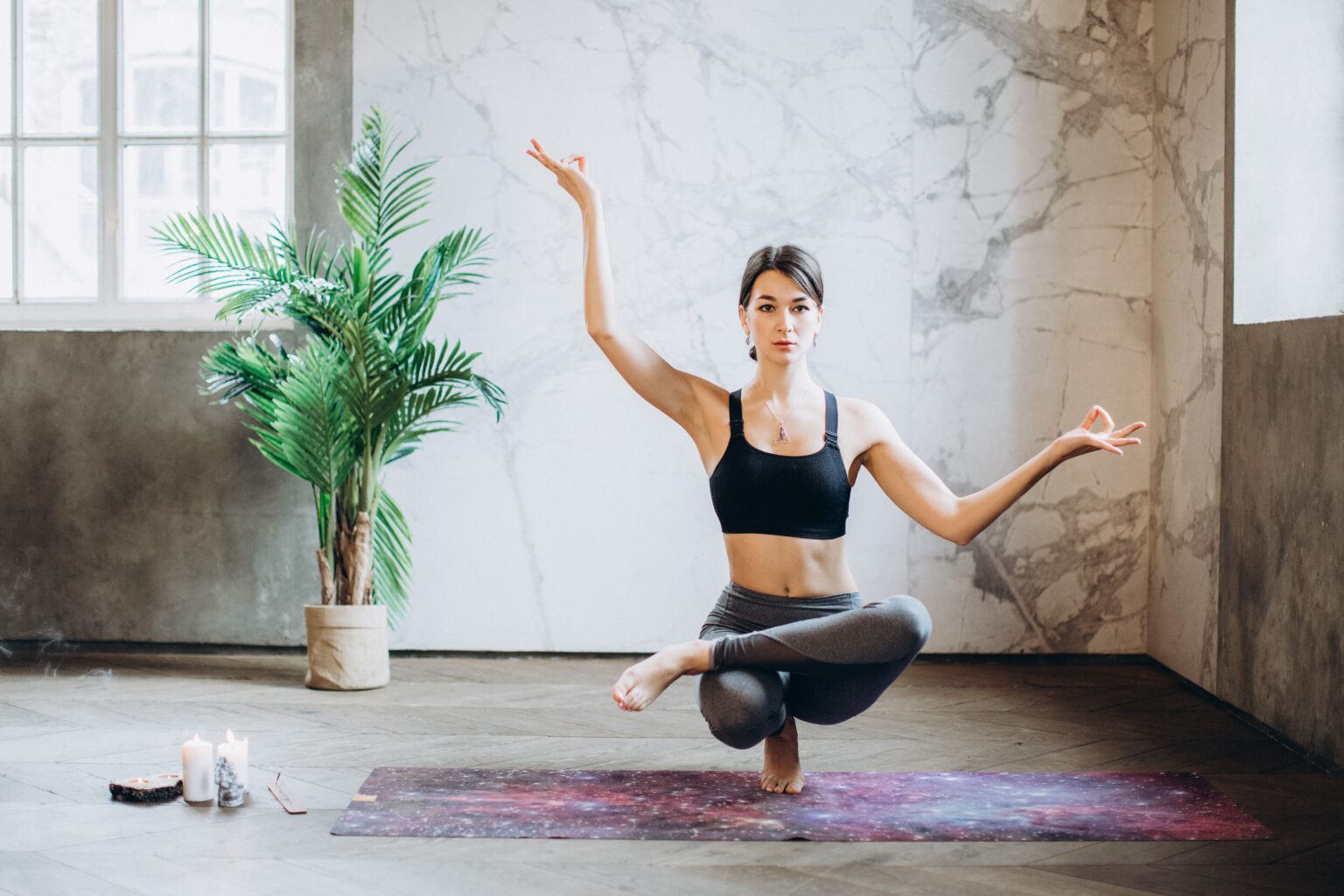Yoga is a holistic practice that combines physical postures, breathing exercises, and meditation to promote overall well-being. It has been practiced for thousands of years and is known for its numerous health benefits. In addition to improving flexibility, strength, and balance, yoga can also be used as a complementary therapy for specific health conditions or ailments.
In this post, we will explore several yoga poses that can help alleviate symptoms and promote healing for various health conditions.
Back Pain
Back pain is a common ailment that can be caused by poor posture, muscle imbalances, or injury. Yoga poses that focus on stretching and strengthening the back can provide relief. Cat-Cow Pose (Marjaryasana-Bitilasana) helps to mobilize the spine and relieve tension in the back. Child’s Pose (Balasana) gently stretches the lower back and promotes relaxation. Sphinx Pose (Salamba Bhujangasana) strengthens the back muscles and improves spinal alignment.
Stress and Anxiety
Stress and anxiety can have a negative impact on both physical and mental health. Yoga poses that emphasize deep breathing and relaxation can help calm the mind and reduce stress levels. Corpse Pose (Savasana) is a restorative pose that promotes deep relaxation and rejuvenation. Legs-Up-The-Wall Pose (Viparita Karani) helps to release tension and promote relaxation. Forward Fold (Uttanasana) allows for a gentle stretch of the back and hamstrings while promoting a sense of calm.
Insomnia
Insomnia can disrupt sleep patterns and affect overall well-being. Practicing yoga before bed can help relax the body and mind, promoting better sleep. Supported Reclining Bound Angle Pose (Supta Baddha Konasana) opens the hips and chest, promoting relaxation. Standing Forward Bend (Uttanasana) calms the nervous system and relieves tension. Legs-Up-The-Wall Pose (Viparita Karani) can be practiced with a bolster or folded blanket under the hips to promote relaxation and improve sleep quality.
Digestive Issues
Digestive issues such as bloating, constipation, and indigestion can be uncomfortable and disruptive. Certain yoga poses can help stimulate digestion and relieve discomfort. Seated Forward Bend (Paschimottanasana) massages the abdominal organs and promotes healthy digestion. Supine Twist (Supta Matsyendrasana) helps to release tension in the abdomen and improve digestion. Bridge Pose (Setu Bandhasana) stimulates the digestive system and improves blood circulation.
High Blood Pressure
High blood pressure is a common health condition that can increase the risk of heart disease and stroke. Yoga poses that focus on relaxation and gentle stretching can help lower blood pressure. Corpse Pose (Savasana) promotes deep relaxation and reduces stress levels. Legs-Up-The-Wall Pose (Viparita Karani) allows for gentle inversion, which can help regulate blood pressure. Supported Bridge Pose (Setu Bandhasana) gently stretches the chest and promotes relaxation.
Menstrual Cramps
Menstrual cramps can cause discomfort and pain during menstruation. Certain yoga poses can help alleviate menstrual cramps and promote relaxation. Child’s Pose (Balasana) gently stretches the lower back and abdomen, relieving tension. Supine Bound Angle Pose (Supta Baddha Konasana) opens the hips and relaxes the pelvic area. Reclining Twist (Supta Matsyendrasana) releases tension in the lower back and abdomen.
Depression
Depression is a mental health condition that can affect mood, energy levels, and overall well-being. Yoga poses that focus on deep breathing and gentle movement can help uplift the mood and promote a sense of well-being. Bridge Pose (Setu Bandhasana) opens the chest and promotes feelings of positivity. Camel Pose (Ustrasana) stretches the front of the body, promoting energy flow and emotional release. Corpse Pose (Savasana) allows for deep relaxation and rejuvenation.
It’s important to note that while yoga poses can be beneficial for specific health conditions or ailments, they should be practiced under the guidance of a qualified yoga instructor, especially if you have any underlying medical conditions. It’s also essential to listen to your body and modify or avoid poses that cause discomfort or pain. Yoga is a holistic practice that encompasses physical, mental, and spiritual aspects, and it can be a valuable tool in promoting overall health and well-being.
In conclusion, yoga poses can be used as a complementary therapy for various health conditions or ailments. Back pain can be alleviated with poses like Cat-Cow Pose and Sphinx Pose. Stress and anxiety can be reduced through poses such as Corpse Pose and Legs-Up-The-Wall Pose. Insomnia can be improved with Supported Reclining Bound Angle Pose and Standing Forward Bend. Digestive issues can be relieved with Seated Forward Bend and Supine Twist. High blood pressure can be managed with Corpse Pose and Supported Bridge Pose. Menstrual cramps can be eased with Child’s Pose and Supine Bound Angle Pose. Depression can be addressed with Bridge Pose, Camel Pose, and Corpse Pose. Remember to consult with a qualified yoga instructor and listen to your body’s needs when practicing these poses.

